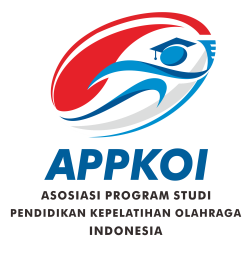Strength and Conditioning - Exercise Science Journal (SCESJ) is committed to maintaining the highest standards of ethical behavior in the publication process. To ensure the integrity, fairness, and transparency of the research and publications we produce, we adhere to the following publication ethics.
1. Ethical Responsibilities of Authors
Authors submitting to SCESJ must adhere to the following ethical guidelines:
-
Originality and Plagiarism: Authors must submit original work and ensure that the manuscript has not been published or is not under consideration for publication elsewhere. Plagiarism in all its forms (including text, data, and images) is unacceptable. Proper citation and acknowledgment of sources and data used in the research must be provided.
-
Data Integrity: Authors must ensure the integrity of data and research findings presented in their manuscript. Manipulation or fabrication of data is strictly prohibited.
-
Authorship: Authorship should be based on significant contributions to the research. All individuals listed as authors must have made substantial contributions to the research and manuscript. Authors should not include individuals who have not contributed significantly to the work. Each author must approve the final manuscript version and be accountable for its content.
-
Conflict of Interest: Authors are required to disclose any potential conflicts of interest that may influence the research or interpretation of results. This includes financial, professional, or personal relationships that could be perceived as biasing the work.
-
Ethical Approval: Research involving human participants or animals must have received approval from the relevant ethical review board or institutional review committee. Authors must include a statement indicating that informed consent was obtained from human participants and that the study adhered to ethical guidelines for research involving human or animal subjects.
-
Redundancy and Duplicate Publication: Authors must not submit manuscripts that are essentially the same or very similar to work previously published elsewhere. Redundant publication of data or findings must be avoided.
-
Acknowledgment of Sources: All sources of funding and support should be disclosed. Authors must acknowledge individuals or organizations who have made significant contributions to the research, even if they are not listed as authors.
2. Ethical Responsibilities of Reviewers
Reviewers play a critical role in the peer review process, and they are expected to follow these ethical guidelines:
-
Confidentiality: Reviewers must treat manuscripts as confidential documents. They should not disclose or discuss the manuscript with others, except when authorized by the editor.
-
Impartiality: Reviewers must evaluate manuscripts objectively, without bias or personal interests. Reviews should be based on the manuscript’s scientific merit, significance, and contribution to the field.
-
Constructive Feedback: Reviewers should provide constructive feedback that can help authors improve their manuscript. Criticism should be respectful and based on the content of the manuscript.
-
Conflict of Interest: Reviewers should decline to review a manuscript if they have any conflicts of interest related to the manuscript or the authors. This includes personal, professional, or financial relationships that might influence their judgment.
-
Timeliness: Reviewers should complete their evaluations within the assigned timeframe. If they are unable to review the manuscript within the allotted time, they must notify the editor as soon as possible.
3. Ethical Responsibilities of Editors
Editors have a key role in ensuring the ethical standards of the publication process. Their duties include:
-
Fairness and Objectivity: Editors must make publication decisions based on the manuscript’s scientific quality, originality, and relevance to the journal’s scope. Decisions should be made without bias toward the authors or their affiliations.
-
Confidentiality: Editors must maintain the confidentiality of all manuscripts during the review process. Manuscripts should not be shared with anyone not involved in the editorial or review process.
-
Conflict of Interest: Editors must disclose any conflicts of interest that may affect their editorial decisions. If an editor has a conflict of interest related to a manuscript, the manuscript should be handled by another editor.
-
Transparency and Accountability: Editors are responsible for ensuring that the peer review process is conducted fairly and that any issues related to the publication are addressed promptly and transparently.
-
Handling of Misconduct: Editors should take appropriate action if there is any indication of research misconduct, including plagiarism, data manipulation, or unethical behavior by authors or reviewers. This may include retracting articles if necessary, and reporting the issue to the relevant institutions or authorities.
-
Publication Corrections: Editors are responsible for ensuring that any errors or issues identified in published articles (e.g., correction of errors, retractions) are addressed in a timely and transparent manner.
4. Ethical Responsibilities of the Publisher
The publisher ensures that SCESJ adheres to ethical standards in its operations:
-
Support for Ethical Guidelines: The publisher supports the journal in maintaining ethical standards, providing resources for the editorial process, and ensuring that all stakeholders (authors, reviewers, editors) are trained in and adhere to these ethical guidelines.
-
Protection of Research Integrity: The publisher supports efforts to detect and prevent misconduct, such as plagiarism detection tools and a transparent and fair peer review process.
-
Transparency in Funding and Conflicts of Interest: The publisher ensures that any sources of funding or potential conflicts of interest related to the journal are disclosed and that the editorial and publishing processes are transparent.
By adhering to these publication ethics, SCESJ ensures that its publications maintain high standards of scientific integrity, transparency, and trust in the academic community.

.png)










